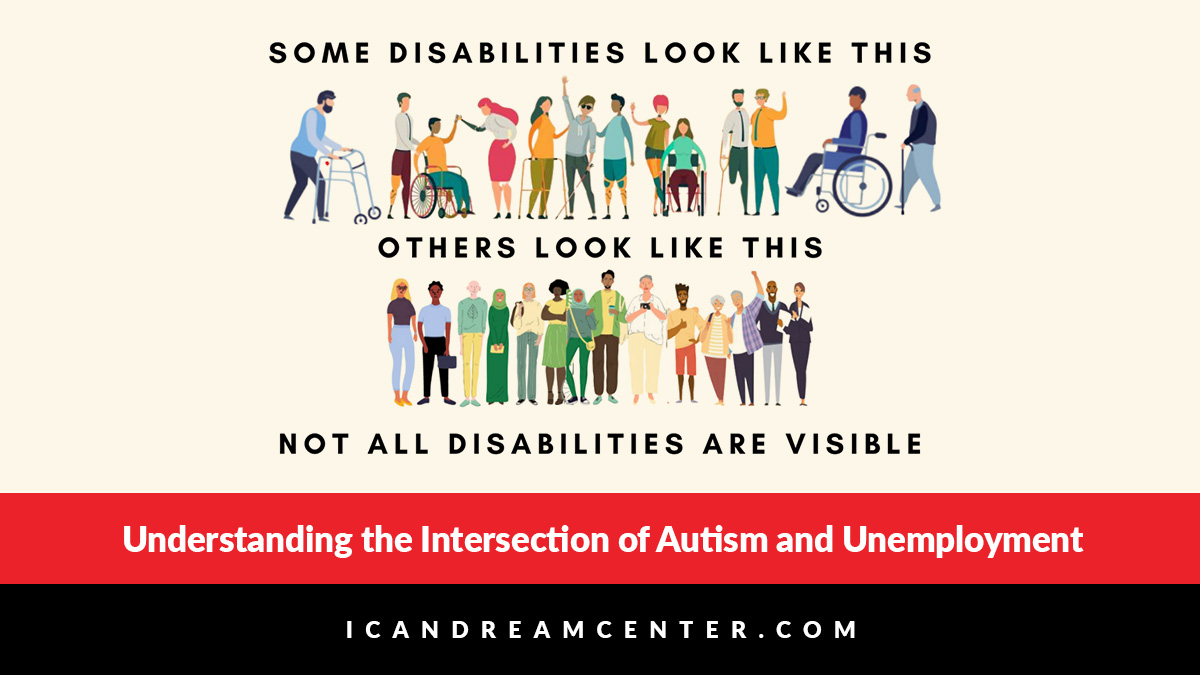
Understanding the Intersection of Autism and Unemployment
Today, we strive for inclusivity and equal opportunities for everyone. However, when it comes to individuals on the autism spectrum, the unemployment rate remains disproportionately high. The intersection of autism and unemployment poses unique challenges for those affected and demands a deeper understanding of the barriers they face. In this blog post, we will explore the factors contributing to the unemployment of autistic individuals and discuss the importance of fostering inclusive workplaces that embrace neurodiversity.
The Challenges:
1. Social Communication and Interactions: Autistic individuals may face difficulties with social skills and nonverbal communication, which can hinder their performance in job interviews or team-based work environments. These challenges can lead to misunderstandings or difficulties in building rapport with colleagues, potentially limiting employment opportunities.
2. Sensory Sensitivities: Many autistic individuals have heightened sensitivities to sensory stimuli, such as noise, bright lights, or certain textures. These sensitivities can make it challenging to adapt to traditional work environments that may be overwhelming or distracting. A lack of accommodation can make it difficult for autistic individuals to fully utilize their talents and skills.
3. Executive Functioning: Executive functioning skills, such as time management, organization, and planning, can pose significant challenges for individuals on the autism spectrum. These difficulties may impact their ability to meet deadlines, complete tasks efficiently, or handle unexpected changes in the work routine, which can be perceived as a lack of competence by employers.
4. Stereotypes and Stigma: Despite growing awareness and acceptance, societal stereotypes and stigmas surrounding autism persist. Misconceptions about the capabilities and limitations of autistic individuals can create biases during the hiring process, resulting in missed opportunities for employment. This contributes to the cycle of unemployment and underemployment experienced by many autistic individuals.
Promoting Inclusion and Employment Opportunities:
1. Sensitivity Training: Employers can provide sensitivity training to educate their workforce about autism and foster a more inclusive environment. This training can increase understanding, reduce stereotypes, and create a workplace culture that appreciates neurodiversity.
2. Accommodation and Flexibility: Employers should strive to provide reasonable accommodation for autistic employees. These accommodations may include adjustments to the physical work environment, flexible work hours, or modifications to job tasks. By tailoring the work environment to suit the unique needs of autistic individuals, employers can unlock their potential and improve job performance.
3. Mentorship and Support: Implementing mentorship programs or assigning workplace buddies can greatly benefit autistic employees. Mentors can provide guidance, support, and help navigate social challenges in the workplace, boosting confidence and facilitating professional growth.
4. Job Training Programs: Governments, educational institutions, and non-profit organizations should collaborate to develop job training programs specifically designed for autistic individuals. These programs can equip them with essential skills, provide internship opportunities, and establish connections with employers who value diversity and inclusion. Please contact us to learn more!
The intersection of autism and unemployment is a complex issue that demands our attention and action. By understanding and addressing the challenges faced by autistic individuals in the workforce, we can create inclusive environments that value their unique strengths and contributions. Efforts to promote awareness, provide accommodations, and foster acceptance can break down barriers and open doors to meaningful employment opportunities. Embracing neurodiversity not only benefits autistic individuals but also enriches our society. It is time to recognize the untapped potential within this diverse community and build a future where no one is left behind.
